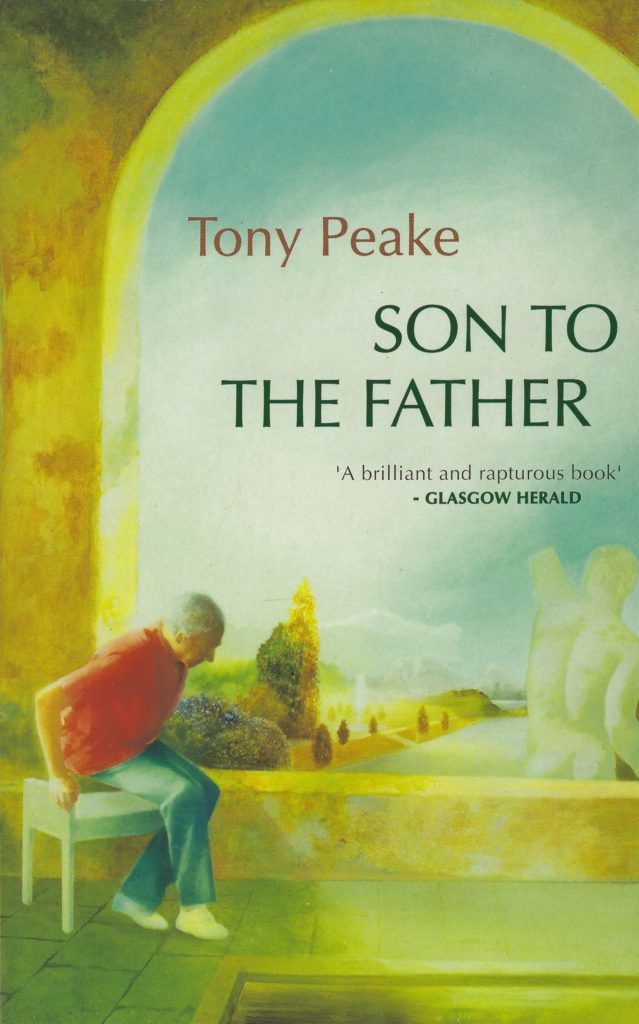
| A mystical vision of ordinary life… (which) seemed to me gorgeous. Hugh Barnes, The Glasgow Herald (Tony Peake) writes with dry ease on the difficulty of being alive. David Hughes, Mail on Sunday In Son to the Father, Tony Peake has created a complex inner journey towards a sense of self-identity, while at the same time using his hero’s inability to realise his own emotional potential to create a sense of tantalising beyondness. Julian MacMillan, The Richmond Review | |
Peter is a twenty-something teacher marking time at a TEFL school in Camden, sharing a flat with his flamboyant friend Jacqui and her ten-year-old son, Jed. Despite his sexual indecisiveness and fear of intimacy, Peter finds his role as surrogate father both gratifying and rewarding, and when Jed unexpectedly lands a part in a film – to be shot in northern Spain by celebrated opera director Carlos Tarifa – it seems only appropriate that Peter give up his job and join Jacqui and Jed on set. Amid the artificial splendour of Tarifa’s sumptuous villa, with its vivid cast of sharklike producers, temperamental script-writers and bewildering array of flunkeys, Jed seems to be the only one unaffected by the undercurrents of attraction and betrayal – sexual, political and religious – which permeate the atmosphere. Peter is certainly not immune, particularly to the charms of Tarifa’s chief assistant, the Adonis-like Quiepo. Nor, in spite of the seductive brilliance of this ballet of artifice, can Peter escape the shadow of his other great denial: that of his father, Edward, a veteran of the Spanish Civil War whose embittered communism is in painful conflict with his son’s paralysing lack of engagement. In charting Peter’s complex journey towards a sense of his own identity, Tony Peake’s beautifully realised second novel deftly employs a glittering and multi-faceted milieu to explore the wider themes of sex and spirituality, fatherhood, commitment and reconciliation. | |
Hardback: Little, Brown, London, 1995. 312pp. ISBN 0-316-87544-9 Paperback: Abacus, London, 1996. 312pp. ISBN 0-349-10807-2 |
Buy from Amazon